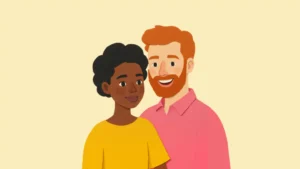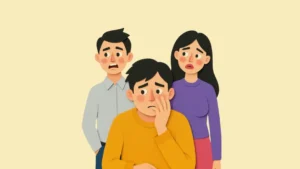What is Grief?
Grief is like carrying a backpack that no one else can see. Some days, it feels light, and you can almost forget it’s there. Other days, it’s so heavy that it’s hard to take a step forward. Whether it’s the loss of a loved one, a relationship, or even a dream, grief doesn’t follow a timeline or a rulebook. It’s messy, unpredictable, and deeply personal. Grief isn’t about “moving on”—it’s about learning how to live with the loss while finding ways to keep moving forward.
How and Where Does It Show Up?
Grief can show up in many ways—sadness, anger, guilt, or even numbness. You might find yourself replaying memories, avoiding reminders of what you’ve lost, or feeling like no one truly understands what you’re going through. Physically, grief can lead to fatigue, changes in sleep and appetite, or body aches. Emotionally, it can feel like a constant emptiness or a sharp wave of sadness that comes out of nowhere. It might affect your relationships, making you feel distant from others or unable to connect the way you used to. Grief is not something you “get over”—it’s something you learn to carry differently over time.
What Are Our Approaches? How Can Therapy Help?
At Talking Distance, we understand that grief is not something you “fix”—it’s something you learn to live with in a way that feels more manageable. Therapy provides a safe, supportive space where your grief can exist without judgment. We’ll work together to help you process your emotions, explore the meaning behind your loss, and find ways to honor what you’ve lost while still living your life. Therapy can help you build emotional resilience, navigate guilt or anger, and create a balanced way to carry your grief without feeling overwhelmed by it. Healing isn’t about letting go—it’s about finding a way to move forward while still holding on to what matters.
FAQs: About Grief and Therapy
There’s no “right” timeline for grief. Everyone’s process is different. Therapy at Talking Distance moves at your pace, focusing on what feels helpful for you.
Guilt is a common part of grief. Therapy helps you explore those feelings with compassion, understanding why they show up and how to reframe them in a way that feels more balanced.
Yes. Complicated grief often involves unresolved emotions or deeper struggles. Therapy provides a safe space to process these feelings and work toward emotional healing.
Healing doesn’t mean letting go—it’s about finding ways to carry their memory while still living your life. Therapy helps you make space for both remembrance and growth.
Absolutely. Grief is a natural response to any significant loss, including the loss of relationships, jobs, or life changes. Therapy honours your experience and helps you find ways to adapt and heal.
There’s no right or wrong way to grieve. Therapy helps you explore your personal experience of grief without judgment, supporting you in whatever way feels true to you.
![Logo [with tagline]-38](https://talkingdistance.com/wp-content/uploads/2025/03/Logo-with-tagline-38-300x138.webp)










